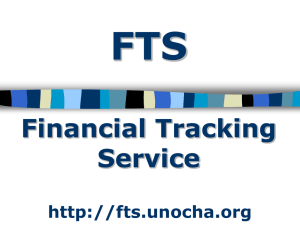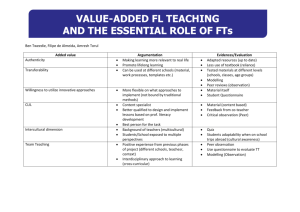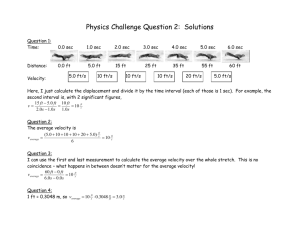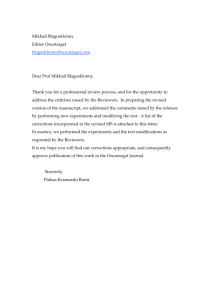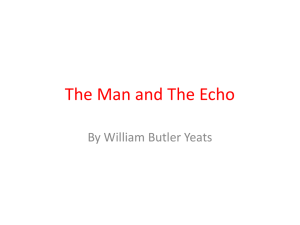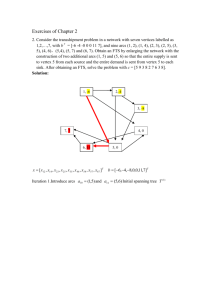EDRIS / FTS : information on the 2 database
advertisement
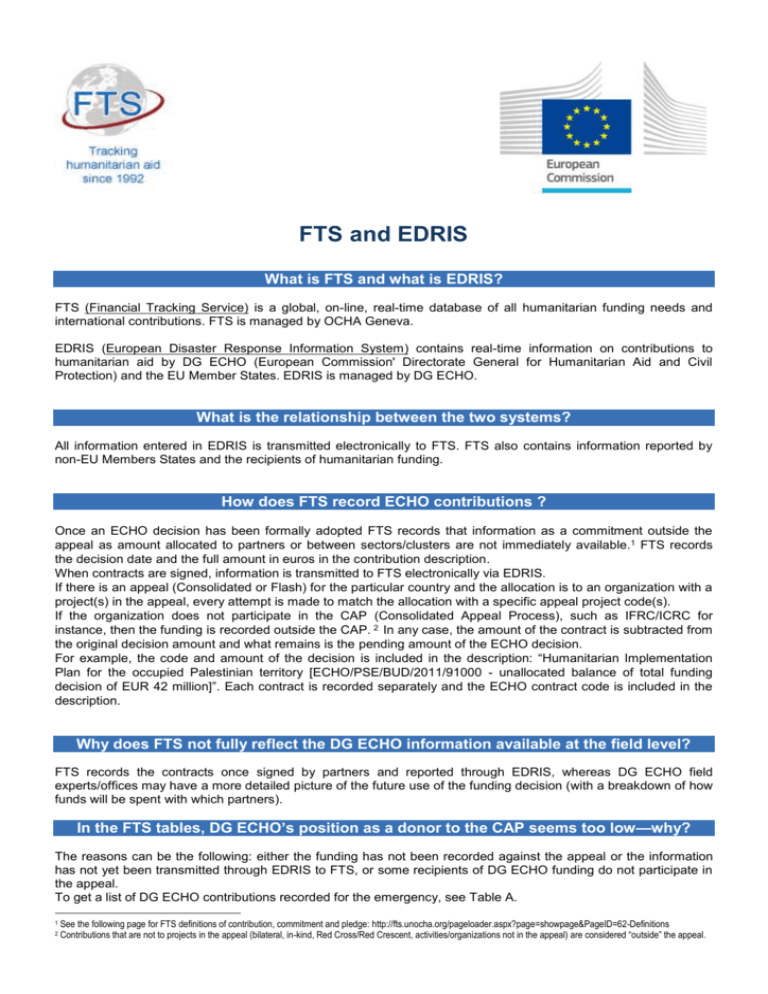
FTS and EDRIS What is FTS and what is EDRIS? FTS (Financial Tracking Service) is a global, on-line, real-time database of all humanitarian funding needs and international contributions. FTS is managed by OCHA Geneva. EDRIS (European Disaster Response Information System) contains real-time information on contributions to humanitarian aid by DG ECHO (European Commission' Directorate General for Humanitarian Aid and Civil Protection) and the EU Member States. EDRIS is managed by DG ECHO. What is the relationship between the two systems? All information entered in EDRIS is transmitted electronically to FTS. FTS also contains information reported by non-EU Members States and the recipients of humanitarian funding. How does FTS record ECHO contributions ? Once an ECHO decision has been formally adopted FTS records that information as a commitment outside the appeal as amount allocated to partners or between sectors/clusters are not immediately available.1 FTS records the decision date and the full amount in euros in the contribution description. When contracts are signed, information is transmitted to FTS electronically via EDRIS. If there is an appeal (Consolidated or Flash) for the particular country and the allocation is to an organization with a project(s) in the appeal, every attempt is made to match the allocation with a specific appeal project code(s). If the organization does not participate in the CAP (Consolidated Appeal Process), such as IFRC/ICRC for instance, then the funding is recorded outside the CAP. 2 In any case, the amount of the contract is subtracted from the original decision amount and what remains is the pending amount of the ECHO decision. For example, the code and amount of the decision is included in the description: “Humanitarian Implementation Plan for the occupied Palestinian territory [ECHO/PSE/BUD/2011/91000 - unallocated balance of total funding decision of EUR 42 million]”. Each contract is recorded separately and the ECHO contract code is included in the description. Why does FTS not fully reflect the DG ECHO information available at the field level? FTS records the contracts once signed by partners and reported through EDRIS, whereas DG ECHO field experts/offices may have a more detailed picture of the future use of the funding decision (with a breakdown of how funds will be spent with which partners). In the FTS tables, DG ECHO’s position as a donor to the CAP seems too low—why? The reasons can be the following: either the funding has not been recorded against the appeal or the information has not yet been transmitted through EDRIS to FTS, or some recipients of DG ECHO funding do not participate in the appeal. To get a list of DG ECHO contributions recorded for the emergency, see Table A. 1 2 See the following page for FTS definitions of contribution, commitment and pledge: http://fts.unocha.org/pageloader.aspx?page=showpage&PageID=62-Definitions Contributions that are not to projects in the appeal (bilateral, in-kind, Red Cross/Red Crescent, activities/organizations not in the appeal) are considered “outside” the appeal. To get a list of DG ECHO contributions recorded against an appeal, see Table F. DG ECHO representatives working at headquarters and in the field and OCHA field office focal points are encouraged to work together to improve how information is presented on FTS (particularly for CAP funding), however all information must be reported through EDRIS, as per standard procedures. Are pledges recorded in EDRIS? Pledges are recorded in FTS and defined as “a non-binding announcement of an intended contribution or allocation by the donor". It can be specific as to appealing agency and project, or specify only the crisis (e.g. a pledge for the Darfur crisis or for the Sudan Consolidated Appeal)”. In addition, FTS records commitments and paid contributions3. EDRIS does not record pledges, only commitments and paid contributions. Is it possible to see a combined report for DG ECHO and all EU Member States? Yes, click here for a global overview of all DG ECHO and EU Member States contributions. If you would like this information organized by recipient country, click here.4 Is it possible to see a report for DG ECHO only? If you would like to see only DG ECHO contributions, click here. If you would like to modify the years of this search, you can click on “Modify selection criteria” at the top. 09/02/2016 For additional information about FTS or ECHO-EDRIS, please contact: fts@un.org or ECHO-HOLIS@ec.europa.eu For FTS definitions please see here: http://fts.unocha.org/pageloader.aspx?page=AboutFTS-definitions. 4 Please note that “none” indicates multilateral/core contributions, and “region” indicates sub-regional contributions. 3 Updated on 20/03/ 2012 www.fts.unocha.org | www.unocha.org United Nations Office for the Coordination of Humanitarian Affairs (OCHA) • Coordination Saves Lives FTS – PN 301-5, OCHA, Palais des Nations, 1211 Geneva, Switzerland. E-mail: fts@un.org
